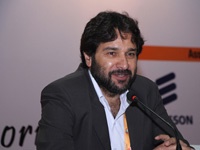BLOG: It's time to bring the green machine back

Delhi, one of the most populous cities in India, has a major problem of transport. Cross-section of people live in the city, and commuting is an essential element to earn the livelihood. The basic services to the city’s population is being provided by the working class who are responsible for water, sanitation, housekeeping, construction etc. The major forms of transport include metro, buses, taxis, private cars, pedestrians and the 200-year-old green machine – the bicycle.
According to an estimate, there are more than four million bicycles in the city, and a good number of people use it as a mode of transport. The old fashioned black bicycle with spouse on the carrier and child on the front was a common feature in the 1980s, though hardly seen now.
Today, if one looks around during the day, the bikes are hardly seen as a mode of transport. So where have all these cycles and cyclists gone? Because of the fear and scary nature of Delhi’s urban transport (the guzzlers and the SUVs), the cyclists move in early hours from 6 to 8 in the morning. This is the time when they flock together and move towards their destinations.

Photo credit: Shutterstock
But the question to ponder is that why this successful mode of transport is under threat in a mega city like Delhi? While, the western countries, especially Europe, are building the infrastructure and the consciousness for enhancing bicycle as a mode of transport, India seems to be lagging behind. Why are the working people scared to use bicycle, (which probably is the cheapest mode of transport) on the roads?
The alarming scenario of accidents on Indian roads is probably the first reason for dissuading the cyclists. In India, at least 16 people die every minute due to road accidents. Two wheelers account for 25% of the total road crash deaths. According to the Transport Research Wing (TRW) of the Ministry of Road, Transport and Highways, in five years (2011-15), 25435 cyclists have been killed on Indian roads. The worst cities where the largest bicycle riders’ fatalities have taken place are Delhi, Chennai, Jaipur, Bengaluru, Mumbai and Kanpur. Moreover, Delhi is the worst placed city for the cyclists.
The figures are quite revealing about the fate of the cyclists on the roads. Still a large section uses it for they have no other means to supplement the mode. What the city governments or the parastatal running the department of mobility must ensure is:-
1. Proper infrastructure for the cyclists. In Delhi, it is believed that the total length of the roads is about 28000 km. the arterial roads are 1200 km and collector roads about 3600 km. A proper plan has to be put in place by engaging the stakeholders. The mobility plan designed should keep into track the entire mobility of the city.
2. Proper design of the tracks: the design should be such that the cyclist enjoys riding on it. The tracks should have ample light during the night. Otherwise, the bicycle will once again be seen on the roads thus, allowing the tracks to be occupied for some other purpose.
3. Appointing Bicycle officers: the city should mention in the plan the requirements and the appointment of bicycle officers for the city. The conventional method of enforcing mobility by either the transport officials or the Delhi police is too outdated. Neither do they have the capacity to comprehend bicycle as a mode of transport and the importance for enforcement nor they are interested in the paradigm shift that is required. Hence, a new team has to be developed around the bicycle officers.
4. Building a people’s movement: just the infrastructure will not help. Bicycle officers may work but without the participation of the people reclaiming what has been theirs; the model will not succeed. It is a question of commons which has to be reclaimed back as has been done by the people, and the city government of Barcelona. Ciclovia is another movement of the cyclists and the pedestrians in Latin America to reclaim the commons.
Tikender Panwar is the ex-Deputy Mayor of Shimla



